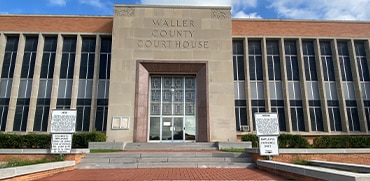Jurisdiction of Waller County Court at Law
The Waller County Court at Law has jurisdiction over various civil and criminal matters, including family law cases, probate issues, and misdemeanor offenses. Understanding the court's jurisdiction is essential for individuals seeking legal remedies or facing charges within its purview.
This court operates under specific legal guidelines that dictate its authority, making it a crucial venue for resolving disputes and administering justice. For example, family law cases such as child custody and divorce proceedings are commonly handled here, ensuring that local residents have access to necessary legal services.
Presiding Judge and Court Personnel
The presiding judge of the Waller County Court at Law plays a vital role in overseeing court proceedings and ensuring that justice is served fairly and impartially. Knowing who the judge is and their background can provide insight into the court's operations and decision-making processes.
In addition to the presiding judge, the court is staffed by various personnel, including clerks and bailiffs, who assist in the administration of justice. Their roles are crucial in maintaining court order and facilitating communication between the court and the public.
Legal Resources and Assistance
Individuals seeking assistance related to their court cases can benefit from various legal resources available in Waller County. These resources include legal aid organizations, self-help centers, and online tools that help users navigate the legal system effectively.
For instance, local legal aid services provide support to those who may not afford an attorney, ensuring that everyone has access to legal representation. Additionally, the court's website often contains useful forms and instructions for filing documents, making it easier for individuals to manage their cases independently.
Frequently Asked Questions about the Court
Many individuals have common questions regarding the Waller County Court at Law, such as its operating hours, procedures for filing cases, and how to obtain court records. Addressing these frequently asked questions can help demystify the legal process for the community.
For example, potential litigants often inquire about the steps involved in initiating a lawsuit or the timeline for court proceedings. Providing clear and concise answers to these questions can empower individuals to engage with the court system more confidently and effectively.







